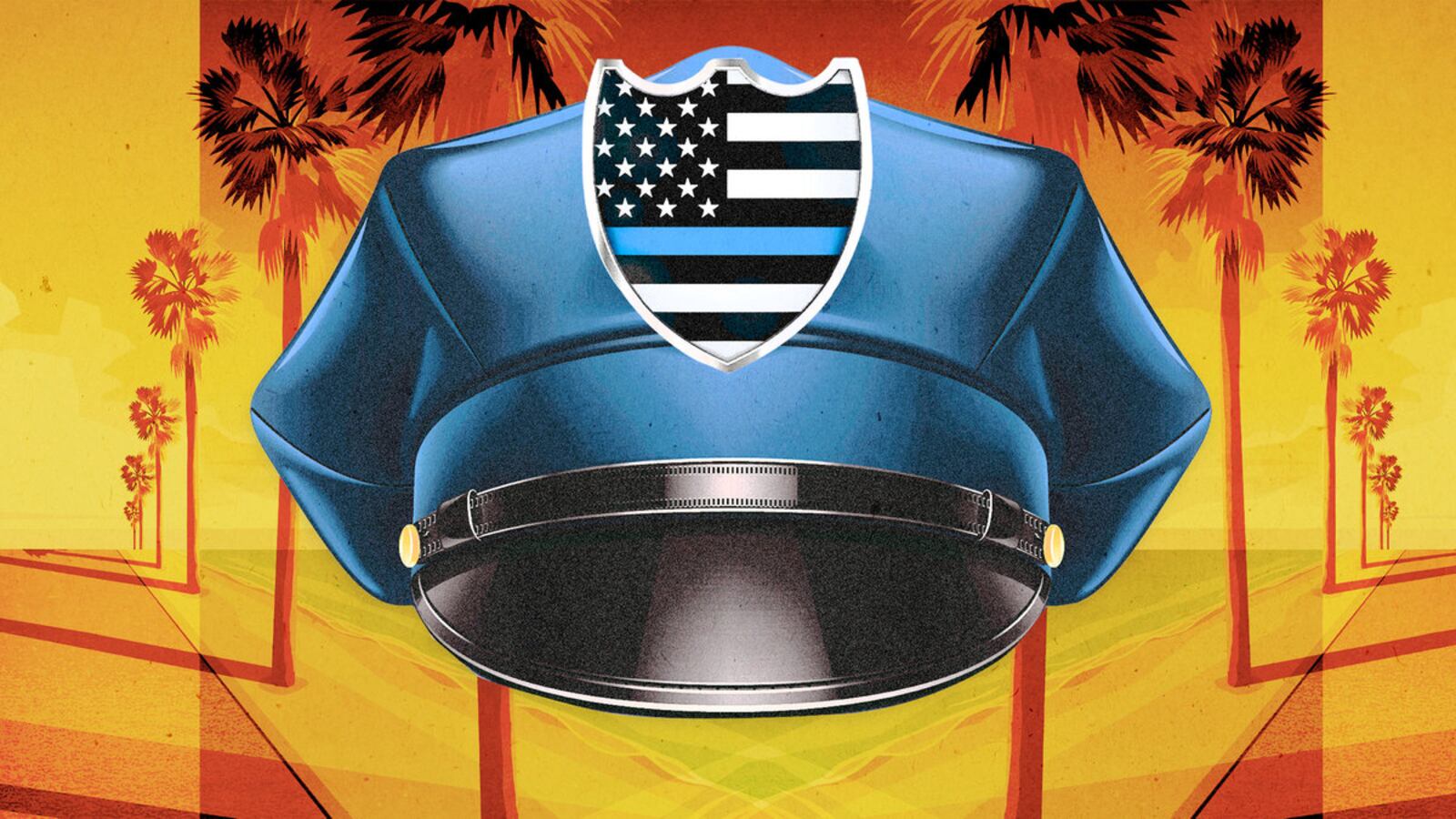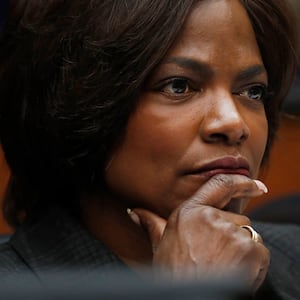Fifty-seven officers quit an elite Buffalo, New York, police unit after two of their peers were punished for pushing an elderly activist who promptly started bleeding from his skull. In Philadelphia, rumor spread that cops would call in sick during raucous protests, in objection to assault charges against a fellow officer.
As protesters around the country demonstrate against police brutality, some of those police forces are showing signs of their own unique brand of reactionary activism.
Nationwide demonstrations geared at reining in police brutality against black people have produced new examples of unnecessary force, with police cracking down against demonstrators, sometimes in cases that resulted in viral videos or criminal charges against the officers. But as they have long done, local police unions say officers are being unfairly villainized, leading to calls for cops to walk off the job in protest.
It wouldn’t be the first time in recent years that police have tried to sway public opinion by refusing certain work or engaging in work slowdowns. But with talk of defunding entire police departments (and even abolishing police altogether) in the air, the prospect looms of embittered cops essentially calling activists’ bluff.
Corey Pegues, a former deputy inspector in the New York City Police Department, said stunts like work slowdowns bothered him through a long career with the force.
“I’m totally against that. When you raise your hand to protect and serve, your allegiance is to the citizens of that municipality,” he told The Daily Beast. “They’re trying to put pressure on either the leadership of their department or their city, be it the city council, the mayor, that’s what they’re doing when they do stuff like that. For 28 years now, it has just pissed me off, every time they do that. It’s almost like they’re running a gang.”
After the Buffalo cops were suspended, all 57 members of the department’s Emergency Response Team quit the team, although they remained on the force. (The two cops have since been charged with second-degree assault.)
A police union for the officers described the mass resignation as an act of solidarity with the suspended officers, although two cops told Buffalo’s WKBW that the real reasons were more complicated. (The Buffalo union could not be reached for comment.)
Peter Moskos, a former Baltimore Police officer and current associate professor at John Jay College of Criminal Justice, said protests by police often begin this way, with officers or their unions complaining that their cities are subjecting them to unfair legal pressure.
“The rules are written by lawyers to protect the city from liability, but then cops are told to police in a way that might end up violating a rule,” Moskos told The Daily Beast.
When cities finally take action—in several cases this month, after viral videos showed startling police violence against protesters—cops can feel like they’re being punished for carrying out orders in a way their superiors secretly condoned.
Moskos characterized that sentiment as, “‘We thought this was our job, we did it legally, and now we’re getting in trouble for it, so absent further instruction or clarification, don’t ask us to do something and then throw us under the bus because there was a viral video.’”
“That’s generally when cops get very defensive and angry,” he added.
Police in New York State can’t openly go on strike due to the Taylor Law, legislation that bans work stoppages by public employees. But in the past, NYPD have slowed work to a crawl, by requiring all officers to follow rules and safety precautions to their fullest extent, like having multiple officers respond to calls, Moskos noted.
Reflecting on past NYPD slowdowns, Pegues said that “they are, in retrospect, striking. They’re just not out there with picket signs… So they just come up with nice slick ways, like work slowdowns. ‘We’ll take our time answering on the job. We’ll back everybody up, two to three cops will show up [on a call]. We’ll stop at red lights.’ All this childish stuff comes from the top, from the very top of the unions.”
Punishment for officers accused of misconduct, and serious discussions of cities defunding police, have led some police groups to dangle action—or rather, coordinated inaction.
On Tuesday, San Francisco’s transit agency announced a series of racial justice initiatives, and a pledge not to transport San Francisco Police to protests against police brutality. The next day, the union representing San Francisco Police officers appeared to threaten to stop policing buses and trains.
“Hey Muni, lose our number next time you need officers for fare evasion enforcement or removing problem passengers from your buses and trains. Shouldn't be a @SFPD officer's job anyway. @SFPDChief should stop using us for this,” the San Francisco Police Officers Association tweeted.
“So we’re all clear. As city leaders demand cuts to SFPD, it needs to be clear what SFPD will no longer do. If a ride on an out of service bus to ensure peaceful protests is too offensive, then don’t send us in to provide ‘security’ services to catch fare jumpers.” The union did not return a request for comment.
Ironically, these calls to withdraw often align with police critics on the left, who say a police presence on public transit disproportionately harms people of color and poor communities. (The replies to the SFPOA’s tweet are full of people encouraging them to make good on their threat and stay off public transit.)
The SFPOA’s missive came shortly after New York City’s police union held a press conference in which leaders raged at their perceived detractors in the city and the media.
“Start treating us like animals and thugs and start treating us with some respect,” New York Police Benevolent Association President Mike O'Meara said during the press conference. (A New York City Police officer was recently charged for allegedly throwing a woman on the ground during a protest, one of many violent acts by police against demonstrators in the city.) New York’s Police Benevolent Association did not return a request for comment.
Police unions channel departments’ anger, Moskos noted. “The union always has that issue that they’re sort of speaking for the id of the police department and a system, but doesn’t have much superego,” he said.
Although the NYPD has not threatened to slow its policing, it has in the past when its union claimed to be at odds with the city government. After the death of two officers in an ambush in late 2014, the department slowed arrests after an email—which the New York Post attributed to the union—called on police not to make arrests or write summonses “unless absolutely necessary.” The slowdown also seemed to target New York City Mayor Bill de Blasio, who had recently said he worried cops posed a risk to his teenage son, who is biracial.
Arrests plummeted. Though the protest was admittedly short, in the middle of winter, major crime actually dropped in the city during the work slowdown, a scientific paper found. Police in Baltimore also appeared to enter a work slowdown that year, after six were charged in the killing of Freddie Gray. (Crime increased during the Baltimore slowdown.)
Members of at least one police department have reportedly suggested a version of a work slowdown this month. After Philadelphia Police Officer Joseph Bologna was charged with assault for allegedly beating a protester, Philly’s police union rallied around him, selling a “Bologna Strong” T-shirt. Some colleagues, although not necessarily the union, reportedly discussed a “blue flu,” in which officers would call in sick to thin the workforce.
It is unclear whether any officers actually took the sick days, after the department’s top brass criticized the plan.
As to whether departments will follow in the footsteps of the 2015 NYPD, Pegues argued it’s a real possibility.
“You might see more slowdowns,” he said. But even though the tactic might pressure city councils across the country—the same bodies mulling dramatic changes to policing rules, and even defunding—he doesn’t see it improving cops’ public image.
“For me, a slowdown only tanks the relationships, drives more of a wedge between the community and the cops,” he said.







